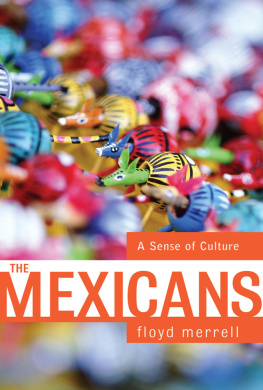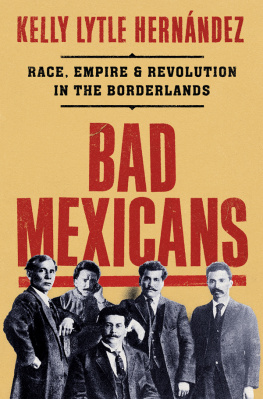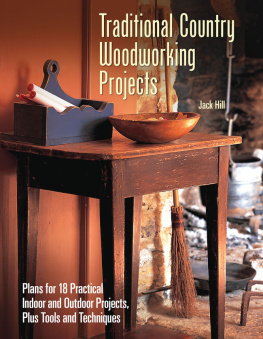First published 2003 by Westview Press
Published 2018 by Routledge
711 Third Avenue, New York, NY 10017, USA
2 Park Square, Milton Park, Abingdon, Oxon OX14 4RN
Routledge is an imprint of the Taylor & Francis Group, an informa business
Copyright 2003 Taylor & Francis
All rights reserved. No part of this book may be reprinted or reproduced or utilised in any form or by any electronic, mechanical, or other means, now known or hereafter invented, including photocopying and recording, or in any information storage or retrieval system, without permission in writing from the publishers.
Notice:
Product or corporate names may be trademarks or registered trademarks, and are used only for identification and explanation without intent to infringe.
A Cataloging-in-Publication data record for this book is available from the Library of Congress.
ISBN 13: 978-0-8133-4044-9 (pbk)
ISBN 13: 978-0-8133-4043-2 (hbk)
Our Big Problem
Knowledge of "Latino" cultures is now more important than ever. During the late 1980s and early 1990s, over 500,000 immigrants arrived annually in the United States, the majority of them from Latin American and Asian countries. That number has increased over the past couple of years. As a consequence, there has been talk of a so-called browning of America. This is in large part due to the influx of Latino immigrants, documented or otherwise, who now reside in the United States. Along with U.S.-born Latinos, immigrants from Latin America make up the growing population of Spanish-speaking people in this country. In fact, among the Spanish-speaking countries in the world, the United States now ranks fifth in population sizeafter Mexico, Spain, Argentina, and Colombia.
Moreover, the economic malaise throughout much of Latin America from the 1980s to the present caused salaries in the professions to lag behind inflation. Consequently, there is a "brain drain": Many educated professionals are leaving their homelands for job opportunities in the United States, and so Latinos are becoming more visible in white-collar jobs. Additionally, an increasing number of U.S.-born Latinos with college degrees are entering the job market, making it even more crucial for non-Latinos to learn more about their Latino counterparts. Sadly, however, although we eat a bland imitation of Latino food, applaud Latino baseball players, enjoy Latino music and Latino actors, and occasionally laugh at jokes about Latinos, in most cases we remain ignorant of Latin America and its cultures.
My Own Little Problem
For the past quarter century I have yearly taught a course in Latin American cultures and civilizations, in Spanish, to undergraduate students. Most of the students are language majors, and a few are native-speaking students from other departments. During the past decade and a half it has become increasingly important that students in fields such as business administration, restaurant and hotel management, family guidance, education, and indeed the traditional disciplines as well, have some familiarity with cultures south of the United States. The problem is that few of these students study Spanish. For the spring semester of 1999, I was scheduled to teach a new course of my own design, in English, on cultural awareness, focusing specifically on Mexico. I had few expectations. To my surprise, the class was soon filled to capacity with a growing waiting list. I felt apprehensive about the students, who, sealed within their customary ways, would resist my effort to enlighten them with cultural tidbits from a strange foreign land. Wrong again. They were surprisingly open to a form of life other than their own.
As a consequence of this experience, I set myself the project of writing this book about Mexico's diverse cultures. These cultures include Amerindian, African American, European, and other ethnically diverse groups, beginning with the conquest and colonization. I offer a historical overview of Mexico while at every opportunity focusing on what makes Mexico the way it is. Emphasis rests on understanding daily life and its complex artistic, political, economic, and social patterns. This book should be of interest to students who during their professional career expect to come into contact with citizens of Mexican and Latin American origin in the United States. It will also, I expect, be helpful for visitors to Latin America.
Presenting a story with appeal to such a diverse audience from many fields brought challenges at every turn. With these challenges in mind, I attempted to create a convergence of the diverse views readers will bring to this book on the need for (1) greater intercultural awareness and (2) cultivation of an ability to appraise radically distinct cultural conventions. Given this focus, the cultural and intercultural concepts presented in this volume offer the image of a broad panorama, including the origins, history, and contemporary trends of one of the most diverse cultures in Latin America.
A Survey
After a brief introduction, stresses the importance of communication in intercultural encounters. It offers examples from (1) miscommunication regarding Justice of the Supreme Court Clarence Thomas's hearings and Anita Hill's charge of harassment and (2) interlinguistic, intercultural communication bloopers common in the advertising media and international diplomacy. These examples involve people's inability to comprehend messages across races, ethnicities, and genders, which serves to emphasize the importance of language and cultural awareness.
introduces the notion or contact zones between cultures within which conflicts emerge. Communication, when it is forthcoming within contact zones, consists of a folding over of a cultural field into and onto itself in such a manner that all people involved enter into interdependent, interrelated, human interaction. Such interdependent, interrelated interaction plays a role in the emergence of Mexico's ethnic mixture, a mixture that began at the time of the conquest. Actually, the process was preordained when Christopher Columbus first dropped anchor in the Caribbean. It led to what historian Edmundo O'Gorman terms the "invention," rather than the "discovery," of America. America was "invented" in that it was foretold in myths, legends, and broad cosmologies that existed in learned societies and in the popular mind at the end of the fifteenth century.
, this conflict erupted in the movement for Mexican independence at the beginning of the nineteenth century.
These first six chapters set the scene for a survey, in to illustrate how Mexico presents on the surface most of the trappings of modernization. Yet Mexico is both modern and unmodern and at the same time neither modern nor unmodern. This uniquely Mexican paradox introduces an element of contradictory complementarity within Mexican culture.
In , the tensions that had been seething under the surface of Mexican society since the revolution finally reveal themselves. There was discontent and political repression in the 1960s. That decade was followed by a wave of populism and abuse of power in the early 1970s, an oil boom in the late 1970s, and a bust when prices fell in the early 1980s. There was economic recession during the 1980s, NAFTA and the rebellion in the state of Chiapas in 1994, and finally the election of President Vicente Fox in 2000 to end Mexico's seventy-one-year single-party rule. Thus Mexico's dreamor illusion as it wereof taking its place among the economic giants of the world remained far from realization. What went wrong? Where could the blame be placed? Is there something within Mexican culture that hinders the country from achieving political, economic, and social development?













